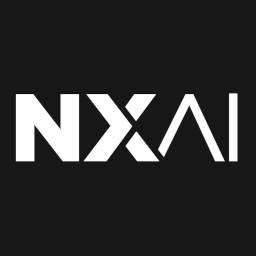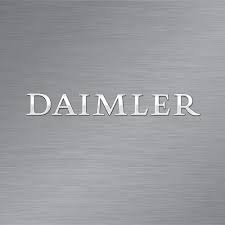Experience
Research Positions


Senior Research Scientist at NXAI in the LLM Team (joined temporarily to bridge the Visa application time to join Google DeepMind in the US). I focused on large-scale pretraining, designing a JAX-based code base which can scale to training 70B models. I conducted research on a 7B model scale, distributed over 256 H100 GPUs, and focused on architecture research for advancing the xLSTM as a Transformer alternative. Tasks included:
- Designing a scalable research code-base for training large-scale models across 256 GPUs.
- Conducting research on the xLSTM architecture and its potential as a Transformer alternative.
- Writing and optimizing Pallas and Triton Kernels on H100 GPUs.

Student Research Intern at Google DeepMind. I was supervised by Mostafa Dehghani and focused on generative multi-modal pretraining. This included training models at scales of up to 4 billion parameters, distributed across 512 devices. The research has been continued in the Gemini project. Tasks included:
- Designing a generative pretraining objective for datasets with interleaved text-image sequences (e.g. blog posts).
- Parallelizing models over up to 512 devices with tensor and data parallelism.
- Training Generative Multi-Modal Large Language Models (VLM) with up to 4 billion parameters.
- Setting up evaluations and demo of developed generative model.
- Investigating scaling laws for VLMs.
Research Intern in the AI4Science lab at Microsoft Research. I was supervised by Johannes Brandstetter and focused on improving scientific simulations with AI and Deep Learning. We developed a Diffusion-like Neural PDE Solver which provides significantly longer accurate rollouts in complex, chaotic PDEs like Navier Stokes and weather dynamics. Our research was published at NeurIPS 2023, see our paper for more details. Tasks included:
- Analyzing limitations of current methods and challenges of long stable predictions of Neural PDE solvers.
- Developing PDE-Refiner, a novel method which, based on noise-based refinement, provides significantly longer accurate predictions.
- Implementing and Training Video Diffusion Models on 1D and 2D PDEs.
- Running large hyperparameter searches and model comparisons.


Teaching
Courses and student supervision
Courses
I have been a teaching assistant and lecturer for a couple of courses of the Master program “Artificial Intelligence” at the University of Amsterdam. A short description of each can be found below.
Deep Learning (Lecturer & TA: 19/20, 20/21, 21/22, 22/23)
This course teaches the fundamentals of deep learning including backpropagation, initialization and regularization techniques, and optimizing deep neural networks. Furthermore, we discuss common neural network architectures (CNNs, RNNs, GNNs), and generative models (Energy-based, VAE, GANs, Normalizing Flows). I have been responsible for creating and teaching a series of Jupyter notebooks to more than 150 students showing the implementation of the most important models, including their benefits and drawbacks. The notebooks are uploaded on this website, and more details on the course can be found here.
Foundation Models (Lecturer & TA: 23/24)
This course reviews recent advances in Foundation Models across multiple modalities. I am giving a lecture on “Training Models at Scale”, discussing various parallelism strategies for distributed training of large models. I also supervise a group of students in their research project.
Advanced Topics in Computational Semantics (Lecturer & TA: 19/20, 20/21, 21/22, 23/24)
In this research-focused course, we discuss recent advances in the field of Natural Language Processing and Computational Semantics. The topics include multi-task learning and meta-learning, as well as transfer learning from large language models (BERT-family) and multi-lingual tasks. The students work on research projects in groups, of which some can become published as conference papers. I have given a lecture on Transformer models, and supervised a group of students in the course years 2020 and 2021.
Natural Language Processing 1 (TA: 19/20)
This course teaches the fundamentals of Natural Language Processing, with the second half of the course focusing on RNNs, Attention and applications including machine translation and summarization.
Fairness, Accountability, Confidentiality and Transparency in AI (TA: 19/20)
This course focuses on four, often underrated topics in Artificial Intelligence: Fairness, Accountability, Confidentiality and Transparency. The goal of the course is to gain a general understanding of those four topics, and reproduce a published paper/method in one of those four fields.
Information Retrieval 1 (TA: 19/20)
The course discusses state-of-the-art techniques that constitute the core of information retrieval systems, such as search engines, recommender systems, and conversational agents. It focuses on evaluation, document representation and matching, learning to rank, and user interaction.
PhD-Level courses
ASCI Computer Vision by Learning (Head TA)
For the ASCI PhD course “Computer Vision by Learning, 2022” (website), I have been the Head Teaching Assistant for designing and teaching the practical sessions. The 1-week course covers fundamentals of Computer Vision by using Machine/Deep Learning, but also the recent trends and research in this domain, including Vision Transformer, Group-Equivariant CNNs, and Self-Supervised Learning. For the course, I have created a series of 5 practicals where students get to implement and experiment with these recent trends in Computer Vision, and they are publicly available on this website.
ELLIS European Summer School on Information Retrieval (Lecturer)
I joined the 15th European Summer School on Information Retrieval (ESSIR 2024) as lecturer. I will talk about Transformers, LLMs, and how to train these models at larger scale.
Student supervision
- Kaleigh Douglas (MSc AI thesis, Jan 2021 - Jan 2022)
- Nadja Rutsch (MSc QUVA Intern, Jun 2021 - Oct 2021; MSc AI thesis, Apr 2022 - Jan 2023)
- Frank Brongers (MSc AI thesis, Nov 2021 - Aug 2022)
- Mátyás Schubert (MSc AI thesis, Nov 2021 - Nov 2022)
- Danilo de Goede (MSc AI thesis, Nov 2022 - Jun 2023)
- Angelos Nalmpantis (MSc AI thesis, Nov 2022 - Jun 2023)
If you are a student looking for a thesis supervisor and working on a similar topic to my research interests, feel free to send me a mail.
Conferences
Reviewing and presentation
I have been involved in the following conferences:
Reviewer for: ECCV-2020, ICCV-2021, CausalUAI-2021, ICLR-2022, CVPR-2022, CLeaR-2022, NeurIPS-2022, CRL-2022, CML4Impact-2022, CDS-2022, nCSI-2022, ICLR-2023, CLeaR-2023, TSRL4H-2023, Physics4ML-2023, UAI-2023 (Top-Reviewer), NeurIPS-2023, ICML-2024, TMLR
Presented work at: NeurIPS-2020, ICLR-2021, ICLR-2022, ICML-2022, UAI-2022, ICLR-2023, ICML-2023, UAI-2023, NeurIPS-2023